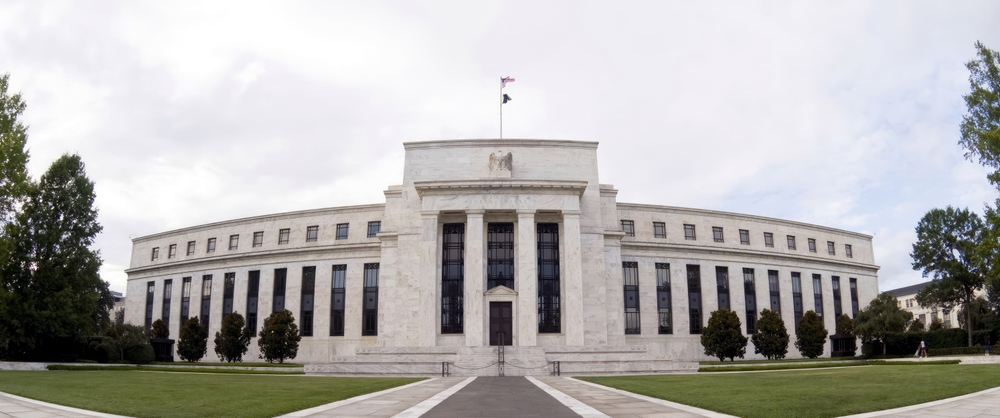.avif)
The Supreme Court Will Review New Waves of Litigation against the Oil Industry
The land-loss cases underscore the close connection between the rule of law and sound energy policy.
The Supreme Court’s decision last week to review the case of Chevron v. Plaquemines Parish is a victory for the Trump administration’s energy dominance agenda and a hopeful indication that the justices will put an end to the jurisdictional charade of litigating national energy policy in state courts where the vibe is more “pay, baby, pay” than “drill baby drill.”
The Chevron case asks whether multi-billion-dollar land-loss cases against U.S. energy majors, stemming from drilling activities that date back to World War II, belong in state or federal court. As I recently wrote in Civitas Outlook, the jurisdictional question at issue in the case is anything but academic—not just for energy companies but for military contractors, health care companies, and other industries that do business with the federal government and rely on having access to federal courts to resolve disputes related to the performance of their contractual obligations. In April, one of the coastal erosion cases (of which there are currently 43) was tried in state court, and the jury returned a $744.6 million verdict based on legal theories that federal courts have already rejected.
The jurisdictional issue in the land-loss cases hinges on the federal removal statute, which permits parties to remove from state courts cases that “relate to” the actions of federal officers. In a 2-1 decision, the Fifth Circuit Court of Appeals denied federal jurisdiction over a dissent from Trump appointee Andrew S. Oldham, whose opinion is a roadmap for how the ascendant textualists on the Supreme Court should analyze the case.
Judge Oldham points out that in 2011, Congress expanded federal jurisdiction to cover cases that “relate to” acts under the color of federal office. The ordinary meaning of “relate to” demonstrates the breadth of the coverage that Congress provided. Dictionaries define the term as meaning “to stand in some relation,” “to pertain” or to have a “connection with.” The use of such a broad term is consistent with the statutory context: since the early-nineteenth century, Judge Oldham notes, “Congress relaxed, relaxed, and relaxed again the limits on federal officer removal.”
The history of federal removal law is pertinent to the land-loss case because of the theory of liability. Although research shows that the leveeing of the Mississippi is the main culprit for the coastal erosion, Louisiana’s Governor Jeff Landry and Attorney General Elizabeth Murrill—both Republicans—have joined forces with trial lawyers representing coastal communities in targeting energy companies instead. The state and coastal authorities are claiming that the land-loss can be traced back to drilling activities that petroleum companies undertook to fulfill military supply contracts during World War II.
But as Judge Oldham explains in his Fifth Circuit dissent, the wartime drilling by petroleum companies clearly “relates to” federal activity. The companies had contracts with the federal government to produce massive amounts of high-octane aviation fuel. The exploration activities that the lawyers for Louisiana and the coastal communities are pointing to as responsible for the erosion were undertaken to produce crude oil—a component of the aviation fuel that energy companies supplied to Allied bombers. These companies could not “snap their fingers, and voilà, make avgas,” writes Judge Oldham. They needed materials for the end product. Since these components are “undeniably” related to federal directives, the ensuing litigation belongs in federal court.
The land-loss cases underscore the close connection between the rule of law and sound energy policy. President Trump emphasized this point in his executive order directing the Attorney General to address state and local efforts to burden U.S. oil and gas companies with “arbitrary or excessive fines through retroactive penalties,” which is precisely what is happening in the Louisiana coastal litigation. The Justice Department should follow through on President Trump’s directive and weigh in at the Supreme Court in favor of federal jurisdiction over the land-loss cases. It would send a clear message that the Trump Administration will protect US energy dominance agenda even when the interference comes from trial lawyers with political ties to Red State leaders.
Michael Toth is a practicing lawyer and a research fellow at the Civitas Institute at the University of Texas at Austin.
Economic Dynamism

The War on Disruption
The only way we can challenge stagnation is by attacking the underlying narratives. What today’s societies need is a celebration of messiness.

Unlocking Public Value: A Proposal for AI Opportunity Zones
Governments often regulate AI’s risks without measuring its rewards—AI Opportunity Zones would flip the script by granting public institutions open access to advanced systems in exchange for transparent, real-world testing that proves their value on society’s toughest challenges.

Downtowns are dying, but we know how to save them
Even those who yearn to visit or live in a walkable, dense neighborhood are not going to flock to a place surrounded by a grim urban dystopia.

The Housing Crisis
Soaring housing costs are driving young people towards socialism—only dispersed development and expanded property ownership can preserve liberal democracy.

Blocking AI’s Information Explosion Hurts Everyone
Preventing AI from performing its crucial role of providing information to the public will hinder the lives of those who need it.

Kevin Warsh’s Challenge to Fed Groupthink
Kevin Warsh understands the Fed’s mandate, respects its independence, and is willing to question comfortable assumptions when the evidence demands it.



.avif)
.jpeg)




.jpg)



.jpg)

